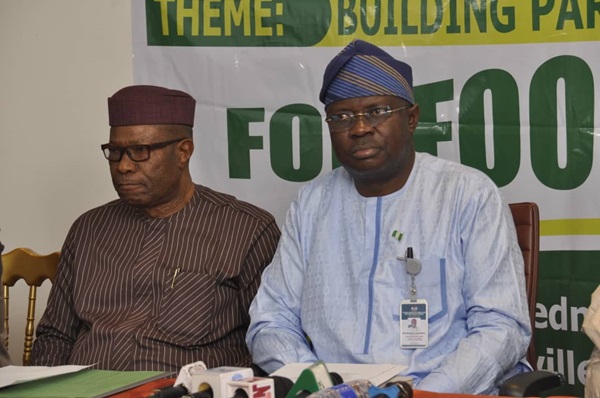
The Federal Ministry of Agriculture and Food Security (FMAFS) is set to boost food production by providing farm inputs and incentives to registered farmers across the nation.
The permanent secretary of the ministry, Dr. Marcus Ogunbiyi announced this initiative during a one-day workshop in Abuja titled “Building a Strong Partnership with the Media for Food Security.”
The workshop underscored the importance of communication, collaboration, and knowledge sharing in achieving the ministry’s goals. Ogunbiyi emphasized the critical role agriculture plays in Nigeria’s economy, particularly amid global economic challenges and the necessity for diversification.
He described the workshop as a demonstration of the ministry’s commitment to openness, transparency, and positive engagement with the media. Ogunbiyi noted that the workshop was timely, given the current administration’s focus on agricultural development and its priority of achieving food security, self-sufficiency and the export of staple commodities.
“The ministry will soon be distributing agricultural inputs and implements to all stakeholders. Arrangements are currently in progress, and this will happen within the next few months,” Ogunbiyi stated.
He stressed, “The importance of agriculture in our national economy cannot be overstated, especially with the global economic challenges we face and the need to diversify our economy. We must mobilise, educate, and raise awareness among the Nigerian populace about the importance of embracing agriculture.”
“It is crucial to inform both Nigerians and the global community about the efforts being made to achieve food and nutrition sufficiency, thus combating hunger, starvation, and malnutrition in our country,” he added.
Director of the department of information at the ministry, Dr. Joel Oruche praised the partnership, stating that a strong relationship with the media would help ensure a food-secure nation. He emphasised the media’s role in educating smallholder farmers about methodologies, input availability and the correct application of agricultural implements to improve their yields.
“Essentially, it is important that we build a strong synergy to work towards ensuring food security in our country,” Oruche said. “Your role is to continuously educate the public about the ministry’s policies, programmes and activities that affect farmers.”
“Smallholder farmers rely on your ability to inform them about methodologies, available inputs, and the application of implements that can enhance their yields. I therefore urge you to give extensive publicity to all of the ministry’s activities, including those of its agencies.”
Director of the Federal Department of Agricultural Extension Services, Dr. Deola Lordbanjou announced the launch of a National Farmers Help Line (NFHL) that offers toll-free call services through designated lines. This service provides real-time agricultural information and advisory services to farmers. Established by the National Agricultural Extension and Research Liaison Services (NAERLS), the NFHL aims to deliver timely information that will help farmers improve their crop yields and farm management practices. The helpline also ensures better market access and promotes sustainable farming practices, empowering farmers to make informed decisions and optimise their productivity.
Additionally, Lordbanjou revealed that the National Electronic Extension Platform (NEEP) would soon be launched to transition the ministry from analogue to digital operations. He highlighted that this platform will serve as a transformative tool to enhance communication and interactions between farmers and other agricultural stakeholders.
“We have all the necessary inputs available for farmers, including sprayers, seeds, organic fertilisers, planters and motorised weeders,” he said. “Anyone interested in farming can easily access all the information they need through the platform. We are using this model as an example for other African countries to follow.”

